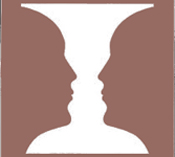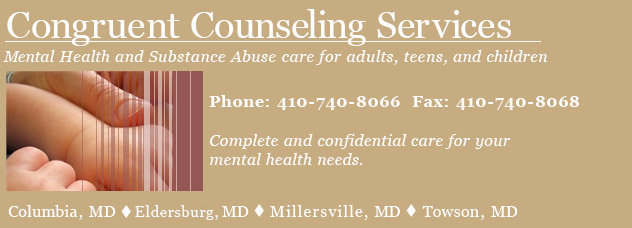|


|
Dialectic Behavioral Therapy (DBT) Informed Mental Health Treatment
Who are we seeing?
Clients attending our DBT Informed Treatment Program have a mental health disorder and have not been successful at making changes in previous treatment. We offer DBT informed addictions treatment programs for adolescents, ages 11 to 18, and adults.
 What is DBT? What is DBT?
Dialectic Behavioral Therapy is a form of Cognitive Behavioral Therapy (CBT) that has been shown to be effective for people with therapy resistant anxiety, major depression (MDD), bipolar depression BPD, personality disorders, mild autism spectrum disorders, Post Traumatic Stress Disorder (PTSD), Eating Disorders, and/or addictions (SUD). DBT has been particularly helpful for clients who have not succeeded at other treatments, who find it difficult to maintain healthy life changes, or who have difficulty remaining safe. DBT was originally created by Professor Marsha Linehan at University of Washington in Seattle. It is gaining momentum to treat a wide variety of disorders across the US and internationally. Here is an FAQ page about DBT from the founder of DBT.
Why do we provide ‘DBT Informed’ treatment?
The "informed" piece of our program is important in that it allows us to utilize different skills and training to meet the individual needs of our clients. We do not offer a one size fits all model. The "Informed" portion of our program allows us to draw from multiple treatment modalities including 12 step and Rational Recovery in addition to Cognitive Behavioral Therapy (CBT), ACT (Acceptance and Commitment Therapy), Person Centered Therapy (Rogerian Therapy or PCT), and Individual Psychology (Adlerian Therapy). We are able to tailor our program to the needs of each of our unique clients and client’s families. All team members are well trained in the DBT model of treatment and the clinical therapists are all working on their individual certification, but also have the flexibility to choose, at times, other treatment models or components in order to meet the needs of the clients.
Why is DBT so difficult to get covered by insurance?
DBT treatment has many components of treatment that are not paid for by any health insurance at this time, including but not limited to skills training classes, phone sessions, parent coaching, crisis intervention, and case coordination with schools and psychiatrists. At this time, no insurance is covering these services. Most DBT programs require out of pocket payment and do not bill insurance because of this challenge. We have been able to get the cost down by billing insurance for the individual and family counseling through Congruent Counseling.
Why do I get charged by two different companies every month?
In order to get as much covered by insurance as we can, our DBT program straddles two companies. Congruent Counseling Services bills the insurance for the in-person office individual, Intensive Outpatient Program (IOP), or family therapy. Integrative Counseling holds no insurance contracts and manages the monthly subscription and services not covered by insurance.
What is the standard course of treatment?
Typically individuals who have multiple hospitalizations and several other failed treatment attempts require 3 to 6 months of the intense treatment. After a period of time of making healthy life style changes and maintaining those changes, clients can step down to lower levels of care that are less intensive and less costly. We know that the longer we keep people in care, even at a lower level, the better they do and the less likely they “relapse” into old behaviors or unhealthy life styles. 
Why are initial consultations not covered by insurance?
During the initial consultation we meet to talk about if you or your family member are appropriate for the program and allow time for discussion and questions. The consult is a longer discussion period and not a formal assessment or intake as required by insurance companies. Because DBT is an involved and time intensive program, we want to spend the time with you and your family to fully understand and agree to commit to treatment.
Our DBT program has four levels of care. They are different depending on the age group.
- Level I - Intensive/Comprehensive: Individuals who have difficulties between sessions and difficulty resolving issues or calming down on their own.
- Level II – Moderate: You can manage in between sessions and are making good use of individual treatment and skills classes. This level of care is less intense with only once a week individual or family treatment.
- Level III - Classes only: For most clients this will mean that their individual/family treatment is being handled outside of the DBT team, however, they want to continue to attend or need skills classes. This level gets access to all the classes and once-a-month coordination with DBT Team member. This does not include on-call or in between crisis management.
- Level IV - Individual sessions only: This level is there for those clients who no longer need skills classes or who choose to work the skills independently. This level is available to those people who want to continue to receive DBT therapy by a team member and who no longer have any of the high-risk behaviors that would require more intense treatment. This therapy is provided under Integrative Counseling and is not billed through insurance.
How are we different from other programs?
We are a Dialectical Behavior Therapy (DBT)-informed treatment program offering services for individuals who have not found success in decreasing emotion dysregulation, impulse control, and self-harm behaviors with other modes of treatment. We draw from the work of Dr. Marsha Linehan and Dr. Lane Peterson, and offer the components of a DBT “program”. Many others offer groups that teach DBT skills that are not fully encompassing programs. Much of the learning, practice, and application is lost with just a group or class. We work hard to help our clients incorporate new skills, a new way of living, into their lives. Even individual and family therapy is done differently in a DBT Program. As noted above, those features important to making change, learning, and using DBT include:
- DBT skills classes twice a week
- Individual therapy with a DBT-informed clinician once to twice a week
- A parent or spouse/significant other group once a week where the parents/SO learn the skills that the clients are taught
- Access to the 24-hour, seven-days-a-week on-call phone
- Case management/Wrap around services
- Weekly staff clinical supervision and consultation meetings - we constantly redirect treatment based on what our clients need
- Homework given to each client to reinforce the skills taught in groups and in individual therapy
- Most insurances accepted for a portion of the program
We also incorporate aspects of other treatment modalities, including cognitive behavioral therapy (CBT), acceptance and commitment therapy (ACT), Adlerian Therapy, etc., while holding true to the core DBT principles and skills. The program at Integrative Counseling and Congruent Counseling is one of the only programs around that can incorporate our full DBT informed program and addiction treatment programs. This has been very effective for clients who cannot maintain clean time or who have dual diagnosis who have not been able to maintain a healthy life style.
Each of these components of our program is what makes us stand out from other groups, which may offer only one group a week or just individual therapy. We tailor the program to each client’s needs, hence the four levels of treatment noted above. We are also different because the individual and family therapy portion of the program can be covered in-network with most commercial insurance companies. No other program in the area offers this.
What are the expectations of family participation?
For Teens, expect parent participation in most sessions. Teens should not be coming by themselves. Most individual sessions will require a parent for at least a few minutes. Teens have an expectation of privacy for therapy. However, until they are safe and without episodes of suicidality or other risky behaviors the safety planning and treatment may occur with the adult in the room.
What are the expectations of family participation for Adults?
For adults living at home with parents, parents are also encouraged to participate in weekly sessions and in scheduled family sessions. For adults living on their own, we encourage participation by spouses, significant others, or family members. Often mental health or substance use disorders cause strain and tension in relationships. Parents, spouses, or significant others may also do things that contribute to the problem or may simply need support themselves. We work to change the system so that everyone is healthier and happier. This not only helps our client get healthy, but also helps families stay together and learn to be healthy as a group.
For further information please call the front desk at 410-740-8066 and schedule a consultation.
Site Map
Home | Meet the Counselors (Columbia, Eldersburg, Millersville, Towson) | Mental Health Services | Outpatient Addiction Recovery Center | Group Counseling Services | Screen/Process Addiction | Psychiatrists | Educational and Psychological Testing | Anger Management Classes | DBT Informed Addictions Treatment | DBT Informed Mental Health Treatment | Directions to Congruent Locations | Contact Us | Helpful Links
|



